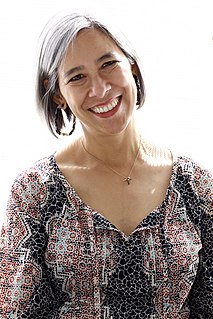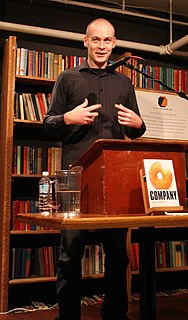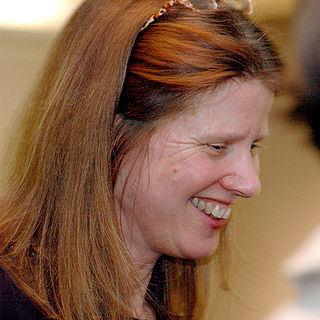A Quote by Emma Healey
While I was writing 'Elizabeth Is Missing' and struggling with the intricacies of the plot, I told myself the next book would be really simple and linear, and I'd have it all worked out before I set down a single word.
Related Quotes
The format of the book was the idea of my wonderful editor, Stephen Segal. Stephen and I had worked together before, on projects for the Interstitial Arts Foundation, and when he got the idea for an accordion-style book, he called and asked if I could write the story for it. I told him that I would love to try! And I knew it had to be a love story, because that's the sort of story you really want to hear from both perspectives. I mean, imagine if Pride and Prejudice were told from Darcy's perspective as well as Elizabeth's. It would be quite a different story!
I've never written a book with an outline or a predetermined theme. It's only in retrospect that themes or subjects become identifiable. That's the fun of it: discovering what's next. I'm often surprised by plot developments I would not have dreamed of starting out, but that, in the course of the writing, come to seem inevitable.
I'm still happy with the way Einstein's Dreams came out. That book came out of a single inspiration. I really felt like I was not creating the words, that I was hearing the words. That someone else was speaking the words to me and I was just writing them down. It was a very strange experience. That can happen with a short book. I don't think it could happen with a long book.
I worked out a book which I thought was just straight science fiction -- with everything pretty much explained, and suddenly I got an idea which I thought was kind of neat for working in a mythological angle. I'm really struggling with myself. It would probably be a better book if I include it, but on the other hand I don't always like to keep reverting to it. I think what I'm going to do is vary my output, do some straight science fiction and some straight fantasy that doesn't involve mythology, and composites.
There's that lovely thing for the first month or two of writing a new book: OK, I don't know what that character's going to do, but we'll find out later. After about three or four months you come to that bit where you've got to put some plot in before it's too late, and you have to go back and start inserting plot, and, ooh, I've left out the literature, OK, lets put some in.
Every book takes me from 35 to 41 days to write. I don't know why that is. I've tried to get it down to 30 or 31, depending on the length of the month, but it won't work. I don't drink while I'm writing because it fuddles my logical processes, but when I finish a book I go down to the kitchen and pour myself a big belt.
I had read [Charles] Dickens's novels were often published serially. I thought it would be fun to write a book, just sitting down and writing a chapter every day, not knowing what would happen next. So that's how I wrote the first draft. And then of course I had to go back and make sure everything worked and change things.







































